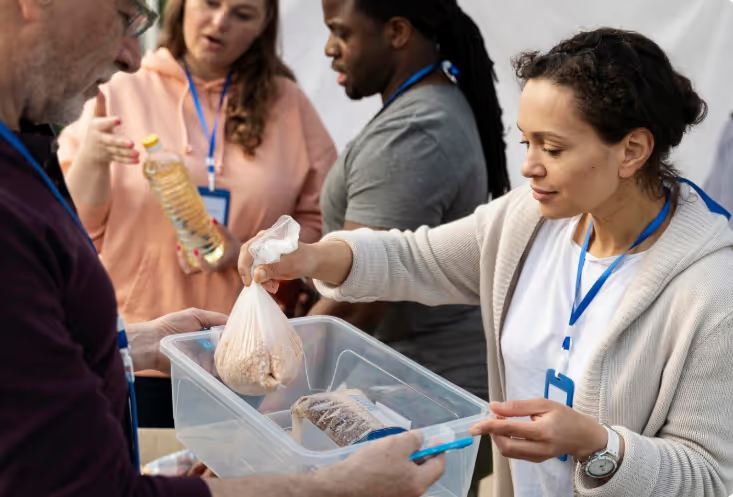Stay informed with our newsletter.
.webp)

.webp)

A dedicated refugee in Tanzania’s Nyarugusu Camp is on a mission to improve maternal health for women in the settlement. Facing limited resources and challenging conditions, they are working to provide better care, education, and support for expectant mothers. Their efforts aim to reduce complications during pregnancy and childbirth, promote safer deliveries, and empower women with essential health knowledge. This inspiring initiative brings hope and change to one of the world’s largest refugee camps.

Rehema Nyanza, a 53-year-old Congolese refugee, has emerged as a strong voice for women’s health in the Nyarugusu refugee settlement in Tanzania, where she has lived since fleeing conflict in the Democratic Republic of Congo in 1996. Within the camp, she has earned the nickname “The Minister of Health” for her active role in representing refugee women and advocating for better healthcare services.
From the beginning of her time in Nyarugusu, Rehema has worked closely with health professionals, tirelessly promoting improved support for pregnant and breastfeeding women. Despite her dedication, she faced a persistent obstacle, the deteriorating condition of one of the main health centers. The buildings, constructed nearly thirty years ago when the camp was first established, had undergone multiple repairs, but the improvements remained inadequate.
Determined to improve conditions, Rehema consistently pushed for the construction of a new facility. She recalls that each time she raised the concern, she was told that funding was unavailable. Nonetheless, she persisted, driven by the painful reality that many women were suffering and often chose to travel longer distances to access better healthcare elsewhere.
Her determination paid off in 2024 when financial support from Ireland and Norway, funneled through the United Nations Kigoma Joint Program (KJP), enabled UNHCR to build a new maternity ward in the camp. This facility was designed to serve both refugees and members of the host community.
Rehema, beaming with pride, now gives tours of the new maternity ward and accompanying restrooms. She points out how the new design solves past problems, patients and their families can now stay together under one roof, and essential facilities like bathrooms are integrated into the building, ensuring safety, privacy, and convenience for mothers.
Nyansa Kashinde, a young refugee mother, gave birth in both the old and new wards. She recounts the discomfort of her first delivery in 2020, when she had to leave her newborn to bathe in outdoor facilities, worried about broken walls and lack of privacy. In contrast, her 2025 experience in the new ward was entirely positive, with clean, well-equipped spaces, attentive staff, and the ability to have her mother present throughout the process. She expressed heartfelt gratitude to UNHCR and the donors for their life-changing contribution.
The construction of this maternity ward is a key component of the Kigoma Joint Program, which brings together UNHCR, partner organizations, and the Tanzanian government to improve services for both refugees and local residents. The results are already visible, more women now choose to give birth at the facility, reducing pressure on the region’s main hospital.
UNHCR’s Public Health Officer, Malika Shakya, observed that the new building has encouraged higher delivery rates at the health center, as mothers now have access to better facilities closer to home.
Rehema finds deep satisfaction in seeing this progress. Witnessing healthy mothers and babies using the facility reminds her that perseverance and advocacy can lead to real change. The achievement gives her hope that refugee voices, when heard, can shape a better future.
Despite these advances, UNHCR’s funding for the refugee response in Tanzania remains critically low, only 18 percent of the required resources have been secured. The agency continues to call for increased international support to sustain improvements and empower more women like Rehema to transform lives within their communities.
For questions or comments write to contactus@bostonbrandmedia.com
Source: allafrica
